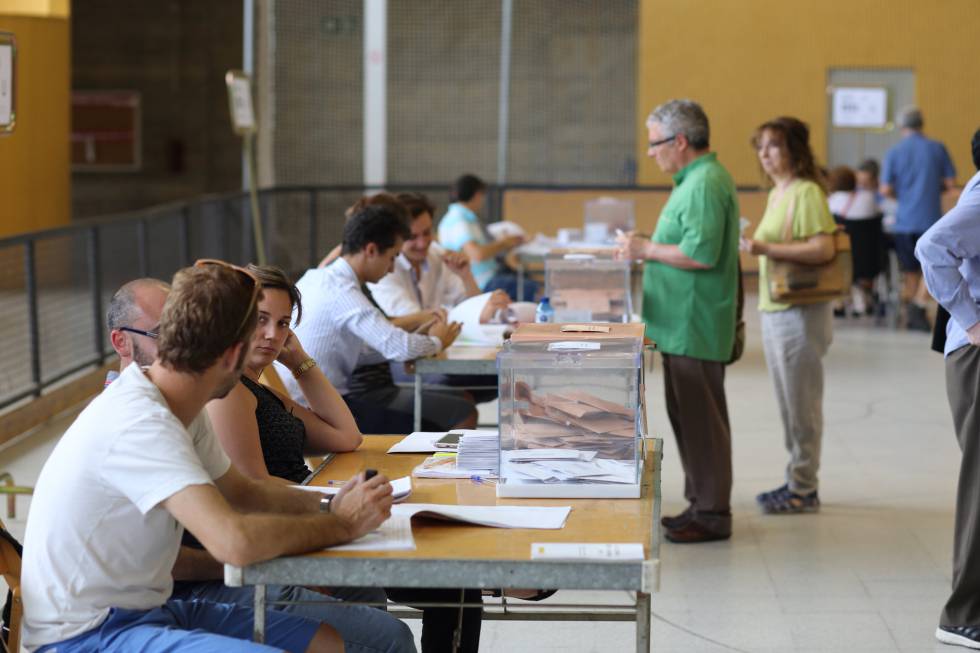The Constitutional confirms that changing the composition of the electoral tables is a crime | Spain

He Constitutional Court It has unanimously confirmed that it constitutes a crime to alter the composition of an electoral table, by dismissing the appeal for a City Council Secretary who carried out such a change of this type in the regional elections of the Canary Islands of May 2015. In her condition as municipal secretary, the appellant was also a delegate of the Electoral Board of Zone, and while fulfilling this function she decided to alter the results of the raffle for the designation of the members who would integrate the tables constituted in that call to the polls.
The behavior that was considered criminal was to exclude people of Spanish nationality from the electoral tables that had names and surnames of foreign origin. The municipal secretary explained that those chosen could not know the Spanish language well, and, therefore, could cause conflicting situations during the election day. In this way the random results were altered that for the choice of the members of the tables provided the computer application used in the raffle of the people who had to hold positions in the tables.
The proposal of the municipal secretary – explains the ruling – was accepted and determined « the effective exclusion of these people, with the consequent alteration in the formation of at least two of the electoral tables finally constituted in the municipality. » The appellant maintained in the amparo demand that her conviction violates the right to criminal law – established in article 25.1 of the Constitution -, understanding that it is « unreasonable and arbitrary » to consider that its action was an electoral crime, typified by article 139.2 of the Organic Law of the General Electoral Regime (Loreg).
The sentence – of which the magistrate Enrique Arnaldo, of the conservative sector of the Court has been speech – reason that the application of his repeated constitutional doctrine on the right to criminal law leads to denied the requested amparo. The ruling argues that from the « straight understanding of the role of the electoral tables as a key piece of our electoral system », it should be concluded that it is « according to argumentation models that the legal community accepts » to identify the conduct of the appellant with the criminal type applied.
The Court considers that « it is not illogical or extravagant » or « unreasonable or surprise » the interpretation made by the criminal jurisdiction, because « it must be remembered that any person of legal age censored in the corresponding section who knows how to read and write can be designated by public draw to be part of an electoral table », in accordance with article 26.2 of the Electoral Law. The Constitutional explains that the exclusion of Spanish citizens lacks justification for the fact of having a name and surnames of foreign origin.
The Constitutional considers that this interpretation of the applied criminal type is also “consistent with the protection of the protected legal good, the safeguarding of the purity of the electoral process in all its phases, in order to guarantee the neutrality, impartiality and independence of the administration that intervenes in the electoral processes”. For this, there must be electoral tables formed by public raffle among all citizens of legal age included in the voter census.







